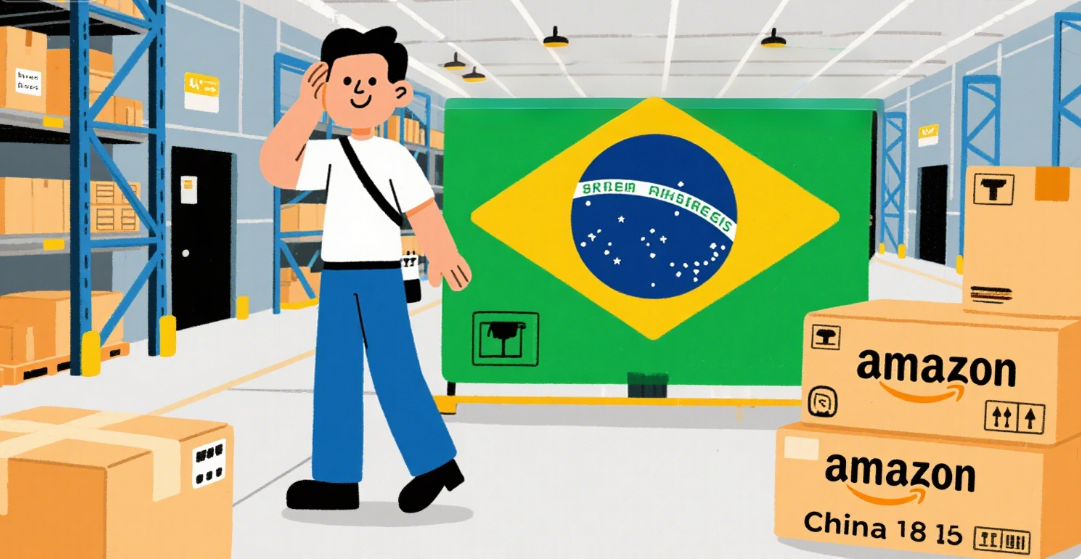Login
How Amazon Sellers Manage Shipments from China to Brazil Amazon Warehouse

In the dynamic world of cross-border e-commerce, effectively managing shipments from China to Amazon warehouses in Brazil is crucial for sellers looking to capitalize on the growing South American market. With the right strategies and logistics partners, Amazon sellers can streamline their shipping processes, ensuring timely delivery and compliance with local regulations. In this blog, we will explore the essential steps involved in managing shipments from China to Brazil, focusing on key considerations for e-commerce sellers, manufacturers, and retailers.
Understanding the Brazilian Market
Brazil is one of the largest e-commerce markets in Latin America, with a rapidly expanding consumer base. For Amazon sellers, understanding the unique characteristics of this market is vital. This includes awareness of local consumer preferences, payment methods, and regulatory requirements. Sellers should conduct thorough market research to tailor their product offerings and marketing strategies to Brazilian consumers.
Choosing the Right Shipping Method
When it comes to shipping goods from China to Brazil, sellers have several options, including sea freight, air freight, and express shipping. Each method has its pros and cons:
- Sea Freight: This is often the most cost-effective option for larger shipments. However, it has a longer transit time.
- Air Freight: Ideal for urgent shipments, air freight is faster but can be more expensive. It’s suitable for higher-value items or products with shorter shelf lives.
- Express Shipping: Companies like DHL and FedEx offer express services for smaller packages, providing door-to-door delivery but at a premium cost.
Choosing the right shipping method depends on the type of products being shipped, the urgency of delivery, and the overall shipping budget.
Partnering with a Reliable Freight Forwarder
Working with a reputable freight forwarder can simplify the logistics of shipping from China to Brazil. A skilled freight forwarder understands the complexities of international shipping, including customs regulations, documentation, and local market conditions. They can assist with:
- Customs Clearance: Ensuring all necessary paperwork is in order to avoid delays.
- Cost Management: Helping sellers navigate tariffs and duties, which can significantly impact overall shipping costs.
- Tracking and Transparency: Providing real-time updates on shipment status to keep sellers informed.
Complying with Brazilian Regulations
Brazil has specific regulations regarding imports, including labeling requirements, taxes, and duties. Amazon sellers must ensure that their products comply with these regulations to avoid fines or shipment rejections. Key compliance steps include:
- Product Classification: Correctly classifying products to determine applicable duties and taxes.
- Documentation: Preparing all necessary documents, such as commercial invoices, packing lists, and certificates of origin.
- Labeling: Ensuring that products are labeled in Portuguese, as required by Brazilian law.
FBA Preparation Services
Utilizing Fulfillment by Amazon (FBA) can significantly enhance the efficiency of shipping goods to Brazil. FBA allows sellers to store their products in Amazon’s warehouses, where Amazon handles storage, packing, and shipping. To ensure a smooth FBA process, sellers should:
- Prepare Products for FBA: Follow Amazon’s packaging and labeling requirements to avoid delays.
- Monitor Inventory Levels: Stay informed about stock levels to prevent stockouts or excess inventory.
Utilizing Technology for Shipment Management
Technology plays a vital role in managing shipments from China to Brazil. E-commerce sellers can leverage various tools and platforms to streamline their logistics processes:
- Inventory Management Systems: To track stock levels and automate reordering.
- Shipping Software: To compare shipping rates and manage logistics efficiently.
- Analytics Tools: To analyze shipping data and optimize routes and costs.
Conclusion
Managing shipments from China to Amazon warehouses in Brazil requires careful planning, compliance, and strategic partnerships. By understanding the Brazilian market, choosing the right shipping method, partnering with a reliable freight forwarder, and utilizing technology, Amazon sellers can ensure their products reach Brazilian consumers efficiently and effectively. With the e-commerce landscape continuously evolving, staying informed about shipping practices and regulations is essential for success in the international market.
By implementing these strategies, cross-border e-commerce sellers can enhance their operations, reduce costs, and ultimately improve their market presence in Brazil and beyond. If you’re looking to streamline your logistics and shipping processes, consider working with a trusted partner like Easy China Warehouse to navigate the complexities of international shipping.
